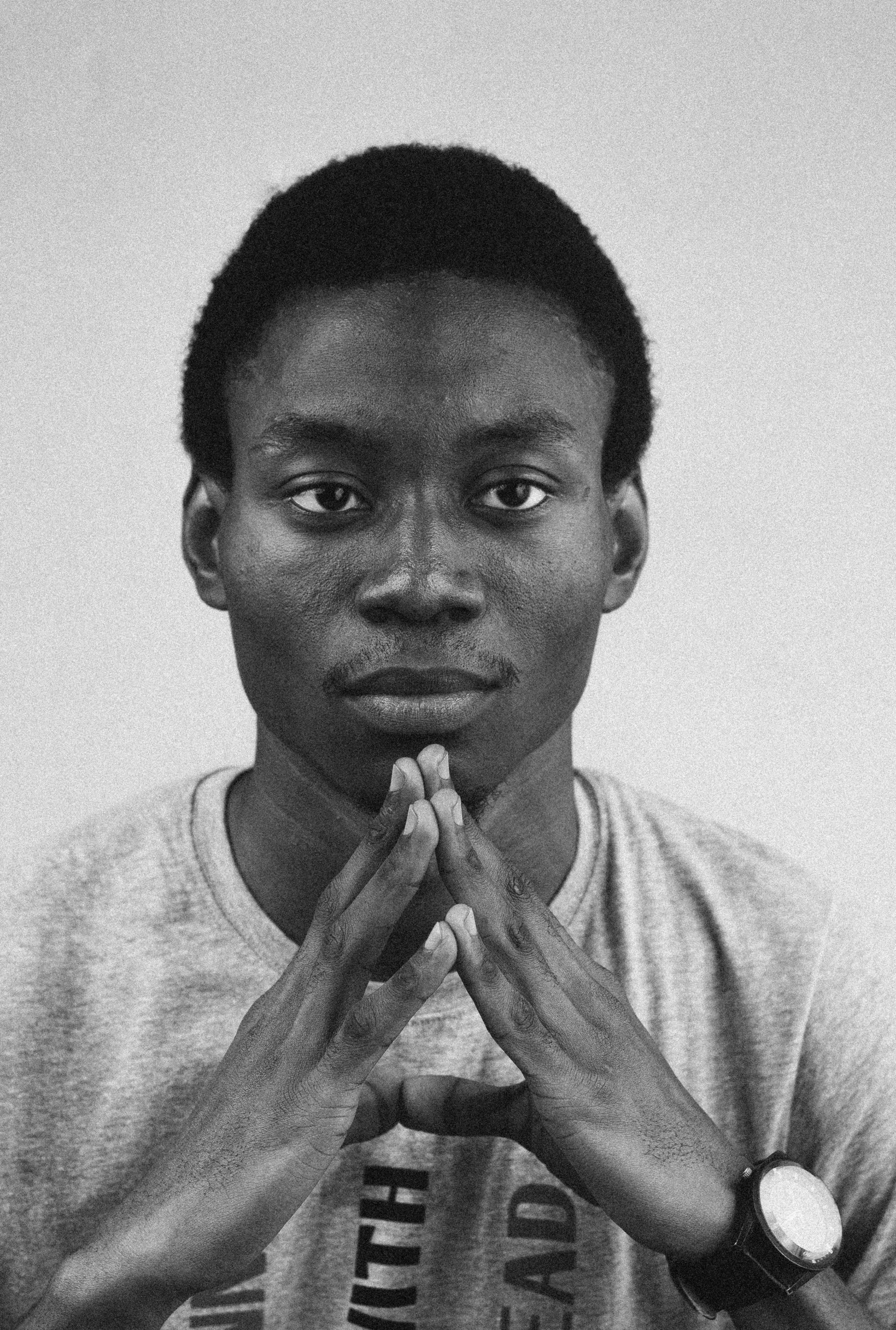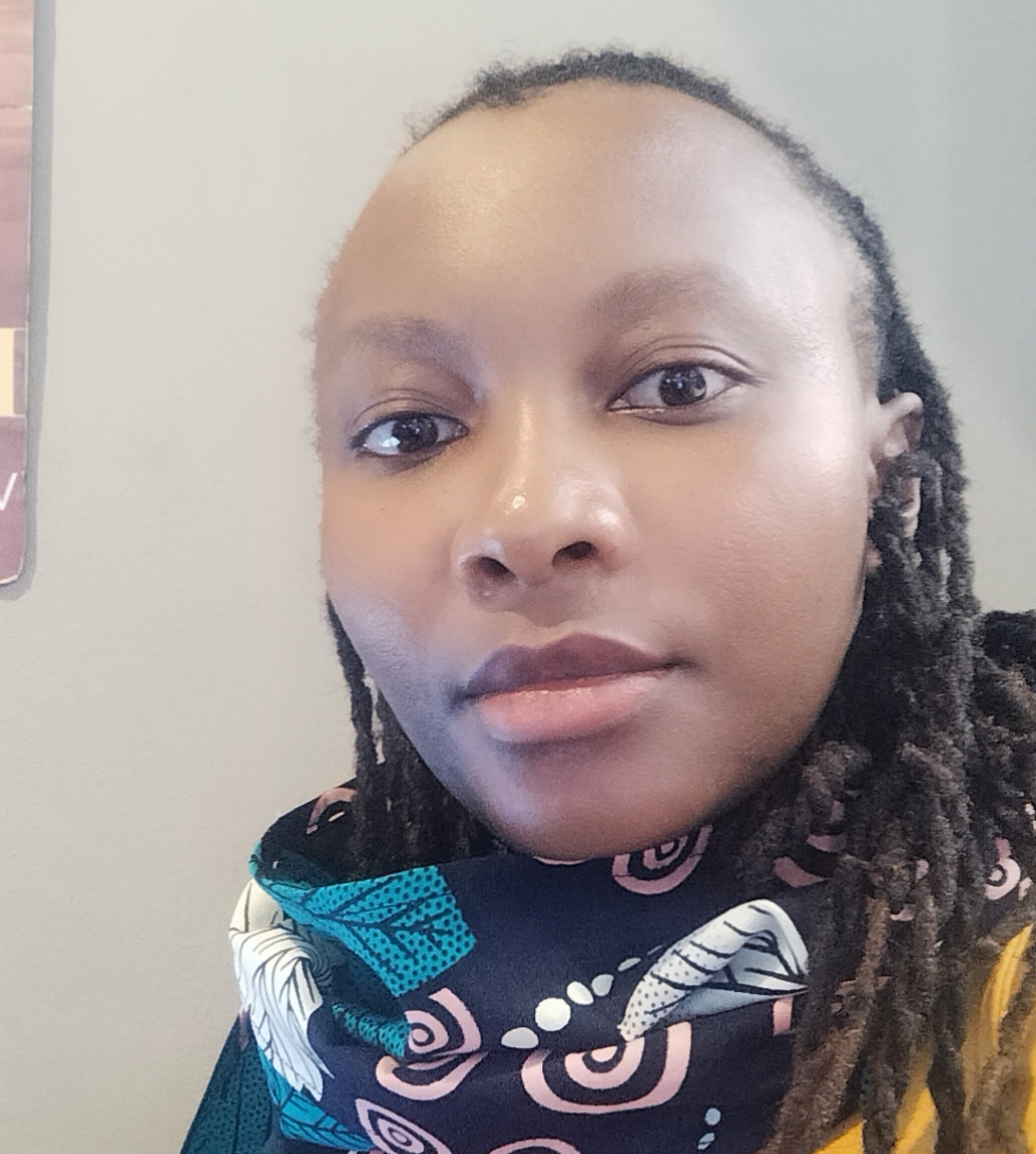In this—the third—edition of A Short Talk, Kenyan writer and editor Makena Onjerika talks to Joseph Omoh Ndukwu, associate editor at A Long House. Onjerika talks about her recent short stories since winning the 2018 Caine Prize for African Writing, about guilt and culpability, writing and editing, and two novels she admires. She also touches on her current project and a possible future one examining the political situation in Kenya and the character of the country’s office holders. Speaking about publishing in Africa, and the hurdles to this, she says, “I think African writers and publishers should place themselves at the forefront of innovating both the forms and formats of fiction.”
A LONG HOUSE
In your short stories, “Girl Games” and “The Boys,” guilt and a memory of guilt over their failure to display loyalty and courage as children haunt the main characters into adulthood. In both stories, the two children, Kendi and Kim, fail to protect or at least show solidarity with their friends. What’s your view of the culpability of children—do you think they are really responsible enough for their actions to feel and bear such levels of guilt? Was fiction a convenient way for you to explore this issue?
MAKENA ONJERIKA
I once heard of two boys in America, aged under 7 years old, who kidnapped and murdered a third boy, a 4-year-old. A grim way to start this interview. I apologize. My point is that children are capable of incredible brutality. I often pray that my son does not find himself involved in such circumstances. As a child and teenager, I struggled to control my emotions. I remember often failing at empathy for others. You might rightly say that these stories are confessionals. There are things I did as a child, when I was not truly capable of understanding why they were terrible things to do, and they haunt me still. Many may argue that they should not. But they do. We all have much to regret. My regret just happens to slip into my fiction. Perhaps this is my way of forgiving myself.
A LONG HOUSE
Why did you choose to tell the above stories, as well as “In the Forest of Talking Animals,” from the perspective of children, even though the narrators were adults or much older at the time of the telling? What did you aim to accomplish by narrating the stories from the perspective of children?
MAKENA ONJERIKA
I wanted my readers to relive moments of childhood. The confusion, the wonder, the joy, the hyperbole. My favourite writer happens to be Bruno Schulz. In his work, I get glimpses of how I experienced the world as a child. There is a certain way of seeing, a certain self-centeredness that belongs to children, and I find it fascinating. Also, although I was in quite a rush to grow up, now I see that childhood and its rules and discomforts and school uniforms were the best of life. Things mesmerized me. Everything was so simple.
A LONG HOUSE
It is evident that these stories and others you have published recently are linked. How are they linked?
MAKENA ONJERIKA
Yes, these stories are linked. They form part of a book I’m working on. They revolve around the same four characters: mother, son, daughter, and their live-in housegirl. The stories start in 1994 when the children’s father abandons the family and they move to a new, much smaller house in a lower middle-class area of Nairobi called Zimmerman. The book follows their lives over the next five years, and we get a story in each of their voices or from their perspectives every year, sometimes in the present tense, other times in the past tense. I intend for the book to be a reflection on Kenyan life in the 1990s: the social, economic, and political state of Kenya as a country and in the world. I am not sure the stories will work as a whole, but this project has held my attention for some 5 years now. I look forward to completing and publishing it, if possible. I am also okay with putting it under my mattress if it’s not publishable. As long as I finish the work.
A LONG HOUSE
When writing and editing short stories, what do you strive toward?
MAKENA ONJERIKA
I have only one goal when I start drafting a new story: to put together something that works as a whole. That’s it. And for me, this is difficult to do. I understand that stories are not written; they are rewritten, draft after draft, and that I should acknowledge and accept this at the beginning of each story. I should face the blank page with no greater expectation than to get the day’s work done. Alas, I always fight against the process. I want to birth my story fully grown and hairy. Stories test my patience. In fact, I don’t even know why I keep writing them. The work is torture. And then it’s not. I have managed to squeeze the vision in my head onto the page and filled in all the missing bits. We have a living, breathing Frankenstein monster and now we can move on to the part I love: editing. This is where I get to play. My story is on paper and isn’t going anywhere. I look at what has emerged so far, what themes, what images and decide whether to up-play or downplay them, depending on the effect I am going for. I may cut a scene or add a scene. I may let the story rest then take it out again and move things around. The process is quite experimental. When I feel a story has done all it can do, I send it out to some writing friends to get their feedback. Mainly I am checking their reactions to parts I think are working and hoping they don’t notice the parts I suspect are not working but that I am either too attached to or don’t know how to fix yet. So I want the critique, but I am afraid of it and all the additional revision it will force me to undertake. They almost always catch those wonky parts, and thus caught, I end up having to face and fix them. There is a lot of guesswork and intuition involved, and the editing goes on until some venue decides to publish the story, usually after many rejections. As a rule, the stories I like most face the most rejection. One I edited about fifty times. Another, that I consider my finest work, was rejected by all the venues I hoped would buy it. This so thoroughly depressed me, I couldn’t write anything new for about a year. Then one day, someone said yes. Editing doesn’t end with publication though. If you are keen you will note that reprints of my stories are sometimes different from the versions originally published. I am a little bit of a perfectionist.
A LONG HOUSE
The Finance Bill Protests have been raging in Kenya these past weeks. Do you see yourself writing a work of fiction in response to that? If you are writing or were to write such a story or novel, what things would you want to highlight and explore?
MAKENA ONJERIKA
I don’t see the Finance Bill Protests as an isolated incident in Kenyan history. We have long agitated against our various oppressive governments. What fascinates me is that very young people, in their 20s, have always been at the centre of protests in Kenya. The guts of it. Standing in front of the state machine and saying no, no, no, knowing full well that it’s most likely to just roll over them and then bury their memory. I could not do that. I am a coward. So I hope to write about these people. I want to look into their hearts. I also want to examine those who facilitate state torture. Those who steal billions of public funds. What are they thinking? How are they constituted? What makes one okay with robbing millions of their livelihoods, health, futures and even lives? What makes them feel that they deserve the suffering of others? This is a one-day-I-will-write-about-this-place kind of project, however. It’s still percolating in my head.
A LONG HOUSE
What is one thing that you feel disgruntled about with regard to the literary scene in Kenya, or perhaps about the African literary scene as you see it, and what steps do you think can be taken to rectify it?
MAKENA ONJERIKA
Truly, nothing. Wonderful things are happening. Festivals, new publishers, new stories and novels across all genres, more prizes, awards, and fellowship wins, new magazines, lots of cross-continental conversations and collaborations and even 6-figure dollar deals for some of us. The literary scene is taking a new and interesting shape (although it is itself not new). We have more readers and particular fandoms, even bookshops dedicated to African writers. All good stuff. If there are any points of contention, I consider them normal. You can’t ever have a perfectly conflict-free process where many people are involved. That’s just human nature. I see a lot of passion and energy. When things implode, other better things are born from the mess.
A LONG HOUSE
Through the Nairobi Writing Academy, which you founded, you have edited and published two anthologies Digital Bedbugs and Equipoise. What unique challenges did you face working with writers and publishing these anthologies in Kenya? Would you say things have improved?
MAKENA ONJERIKA
Neither of these anthologies was produced within a traditional publishing context. We did everything ourselves. Over six months, I worked with each writer on drafting and redrafting their story. Some writers persisted. Some did not. Then I did some copy editing as best as I could and published the work via Kindle direct publishing. The aim was to put out some first works by mainly Kenyan writers, to give them a jumping-off point in their careers. Finding time to get the work done was my main challenge. I published each anthology around Christmas time. A grave mistake. Will I put together more anthologies? Perhaps. Self-publishing like this is hardly financially viable. I do it as a way to bring more Kenyan stories into the world. I believe they are being read and will continue to be read through the years. I am a proponent of digital reading by the way. I don’t see physical books ever being viable in Africa. The distribution hurdles are too great. But legal ebooks cost far less to produce and are accessible everywhere instantaneously. You can carry a whole library on your phone. I think African writers and publishers should place themselves at the forefront of innovating both the forms and formats of fiction.
A LONG HOUSE
If there is one novel you wish you had written, because of its sheer power and beauty, what novel would it be?
MAKENA ONJERIKA
Amit Chaudhuri’s A Strange and Sublime Address. A novelette depicting a boy’s childhood in Calcutta. How I wish I could capture my own childhood in such fine lines and with such gentle breath. And here is a novel I know I could never write: Khadija Bajaber’s The House of Rust. The sentences do whatever they want and yet still make sense. This novel belongs only to Khadija’s mind. I don’t think anyone will ever successfully replicate it.



